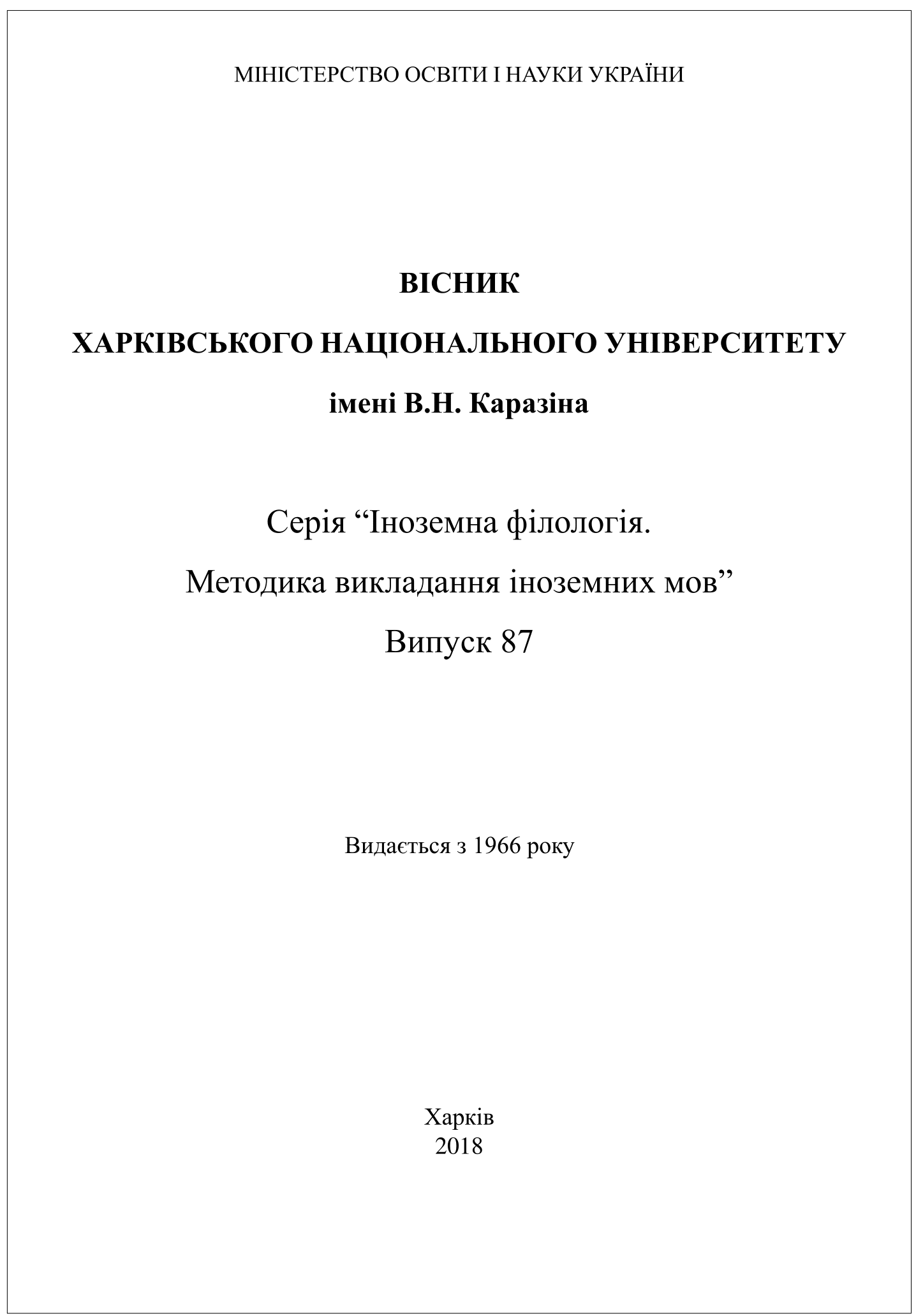Семантика фразеологічних одиниць із компонентом Hund у сучасній німецькій мові
Анотація
Стаття присвячена дослідженню семантики фразеологічних одиниць із компонентом Hund у сучасній німецькій мові. Окреслено смислове наповнення слова Hund у німецькій мові ХХІ століття через термін, функціональний стиль та перенесене значення, розглянуто й уточнено етимологію елемента, виявлено його первісну мотивацію – «одна із гірських тварин», що апелює до ранньоіндоєвропейської мови, простежено семантичний розвиток слова Hund в індоєвропейській мові, висвітлено пряме й перенесене значення аналізованого компонента в семантичній структурі фразеологічних одиниць німецької мови ХХ–ХХІ століть. Детальне вивчення експериментальної картотеки, укладеної авторкою на основі найбільш авторитетних німецькомовних тлумачних («Варіг») і фразеологічних («Дуден») словників, двомовних фразеологічних (Л.С. Осовецька, К.М. Сільвестрова) та найповнішого з-поміж німецько-українських словників, де широко представлено фразеологію – сталі словосполучення, ідіоми, звороти, штампи, приказки, прислів’я (В. Мюллер), дало змогу зробити висновки щодо обмеження лексичних засобів вербалізації семантики собаки. Доведено, що лексичні засоби збігаються із зоологічним терміном і водночас орієнтовані на загальне й перенесене вживання. З частиномовного погляду, собака репрезентована повнозначними частинами мови: іменником і займенником. Іменник характеризується граматичними категоріями роду (чоловічий), числа (однина, множина), відмінка (називний, давальний, знахідний), означеності (означений артикль), неозначеності (неозначений артикль), вилучення (нульовий артикль), займенник диференційовано за семантичною ознакою і відображено третьою особою в множині називного відмінка; виділено його паралельні функції: сполучник та підмет підрядного речення. Встановлено розмаїтість семантики аналізованого матеріалу, зумовленою лінгвальними й екстралінгвальними чинниками. Дані висновки підтверджують широковідомі міркування лінгвістів щодо переходу терміна в загальновживану лексику, семантичного розвитку слова під впливом мовних і позамовних чинників, а також вияву семантичного потенціалу слова в комунікативному та прагматичному аспектах.
Завантаження
Посилання
Gikov, L.V. (2015). The functions of German phraseology. I Tavriyski filologichni chytannya, 27–28 lyutogo 2015 Kherson [1st philological reading Tavriya27–28February 2015, Kherson]. Kherson, 74–76.
Kozak, T.B. (2002). Leksyko-semantychna grupa sliv, yaki poznachayut kolir u nimetskiy movi (diakhronichne doslidzhennya). Avtoref. dys. kand. filol. nauk [The lexiko-semantic group of words denoting «colour» in the German language (diachronic investigation). Cand. philol. sci. diss. synopsis]. Odesa. 20 p. (in Ukrainian).
Kudina, O., and Prorochenko, O. (2005). Perlyny narodnoi mudrosti. Nimetski pryslivya ta prykasky [The pearls of people’s wisdom. The German proverbs and proverbial phrases]. Vinnytsya: New Book Publ.
Levytskiy, V.V. (2000). Etimologicheskiy slovar germanskikh yazykov: v 3 t. [Etymological Germanic dictionary: in 3 volumes]. Chernovtsy: Rue Publ.
Makhachashvili, R.K. (2008). Lingvofilosofski parametry innovatsiy angliyskoi movy v tekhnosferi suchasnogo buttya [Linguistic and philosophical parameters of English neologisms by technical sphere]. Zaporizhzhya: Zaporizhzhya University Press.
Müller, V. (2012). Velykyi nimetsko-ukrainskyi slovnyk [The gross German-Ukrainian dictionary]. Kyiv: Chumak Road Publ.
Osovetska, L.S., and Silvestrova, K.M. (eds.). (1964). Frazeologichnyi slovnyk nimetskoi movy [Phraseological German dictionaty]. Kyiv: Soviet school Publ.
Popkova, O. (2011). Politychna zoonimna frazeologiya ta politychna metafora v suchasnykh ZMI [Political animal phraseology and political metaphor in modern mass-speaking media]. Visnyk Kherson. state un-ty. – Kherson. State Univ. Messenger, 14, 158–161 (in Ukrainian).
Seebold, E. (ed.). (1999). Etymologisches Wörterbuch der deutschen Sprache. Berlin: Walter de Gruyter.
Taranets, V.G. (2004). Arii. Slovyany. Rusy: Pokhodzhennya nazv Ukraina i Rus [Aryans. Slavs. Russ: The Origin f the Names Ukraine and Rus]. Odesa: ORISA NASA Publ.
Wahrig-Burfeind, R. (ed.). (2012). Wörterbuch der deutschen Sprache. München: dtv.
Wermke, M., Kunkel-Razum, K., and Scholze-Stubenrecht, W. (eds.). (2002). Redewendungen. Wörterbuch der deutschen Idiomatik. Mannheim: Dudenverlag, 11.




